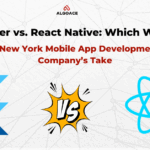
Establishing an inclusive digital landscape has emerged as a critical focus for organizations globally. Making websites accessible to all individuals, including those with disabilities, is not only a moral obligation but also a legal necessity in numerous jurisdictions. In the United States, the Americans with Disabilities Act (ADA) provides a framework for online accessibility, requiring businesses to ensure that their digital environments are as accessible as their physical counterparts. This article will examine how website development services can assist organizations in creating ADA-compliant websites, thereby promoting accessibility while providing exceptional user experiences.
Why ADA Compliance Matters in Website Development
Ensuring ADA compliance in website development guarantees that digital platforms are accessible to individuals of all abilities, promoting inclusivity and improving the overall user experience. Additionally, it aids businesses in mitigating legal risks, broadening their audience reach, and enhancing their SEO performance.
Legal Requirements and Penalties
Noncompliance with ADA guidelines may result in legal actions, financial penalties, and harm to one’s reputation. Numerous businesses in sectors such as retail, hospitality, and healthcare have encountered lawsuits due to their websites being inaccessible. Adhering to these regulations not only safeguards your organization but also fosters a more inclusive online environment for everyone.
Reaching a Wider Audience
The World Health Organization reports that more than 1 billion individuals globally live with some type of disability. Websites that comply with the Americans with Disabilities Act (ADA) are designed to accommodate these users, thereby increasing engagement and broadening the audience for businesses. Additionally, prioritizing accessibility enhances usability for all users, resulting in a more seamless browsing experience.
SEO and Brand Image Enhancement
Search engines such as Google emphasize the importance of accessible websites, which enhances their SEO effectiveness. Implementing elements such as appropriate alt text, video transcripts, and intuitive navigation can boost a website’s visibility. Furthermore, providing inclusive digital experiences not only enhances your brand reputation but also cultivates trust among users.
How Website Development Services Ensure ADA Compliance
Website development services are essential for the creation of ADA-compliant websites, as they incorporate accessibility features like screen reader compatibility, keyboard navigation, and enhanced multimedia elements. These initiatives promote inclusivity, enhance user experience, and safeguard businesses against potential legal liabilities.
1. Building Accessibility into UX/UI Design
A software development company that focuses on website development services can incorporate accessible UX/UI components right from the design stage. It is essential to prioritize accessibility from the beginning, guaranteeing that visual, auditory, and cognitive features are designed to be user-friendly.
Key Features of Accessible UX/UI Design:
- Color Contrast: It is essential to provide adequate contrast between the text and its background to enhance readability.
- Scalable Fonts: Users should have the ability to enlarge or resize text without causing any distortion to the layout.
- Consistent Navigation: It is important to uphold predictable layouts and intuitive menus for ease of use.
Incorporating accessible design from the outset of the development process helps to prevent expensive modifications in the future.
2. Incorporating Assistive Technologies
Contemporary websites can utilize assistive technologies to accommodate users with disabilities. Website development services incorporate features such as:
- Screen Reader Compatibility: Guaranteeing that textual content is accessible for auditory reading by screen readers.
- Keyboard Navigation Support: Facilitating navigation of the website solely through keyboard inputs, which is crucial for individuals with motor disabilities.
- Voice Search Integration: Allowing users to engage with the site via voice commands.
These tools contribute to a smooth browsing experience for individuals with diverse accessibility requirements.
3. Optimizing Multimedia for Accessibility
A software development company can guarantee that multimedia content complies with ADA standards by enhancing it for accessibility. Recommended practices include:
Adding Alt Text for Images
Alternative text offers a description of images for screen readers. This practice enhances accessibility and also improves search engine optimization by assisting search engines in comprehending visual content.
Providing Captions and Transcripts
It is essential for videos and audio files to incorporate captions or transcripts to enhance accessibility for individuals with hearing impairments. Additionally, these elements contribute to making the content more engaging and easier to search.
4. Ensuring Mobile Accessibility
As the number of users accessing websites via mobile devices continues to rise, ensuring accessibility on these platforms has become essential. Website development services prioritize the creation of responsive designs that uphold accessibility standards across various devices.
Best Practices for Mobile Accessibility:
- Adaptive Layouts: Guarantee that all components resize appropriately for smaller displays.
- User-Friendly Touch Design: Ensuring that buttons and hyperlinks are sufficiently large and easily tappable.
- Voice Command Integration: Incorporating voice-activated features for enhanced accessibility.
A mobile-compatible website allows users of varying abilities to interact with your content, regardless of the device they are utilizing.
Testing and Compliance Checks with Website Development Services
Website testing and compliance assessments are crucial for ensuring that websites adhere to ADA standards and deliver an inclusive experience for all users. Services related to website development utilize automated tools, conduct manual audits, and implement ongoing monitoring to effectively identify and address accessibility challenges.
1. Using Accessibility Testing Tools
To ensure compliance with the Americans with Disabilities Act (ADA), website development services employ automated accessibility testing tools, including:
- WAVE: This tool evaluates web pages for potential accessibility problems.
- Lighthouse: Developed by Google, this tool offers valuable insights regarding both accessibility and performance.
- Axe Accessibility Checker: A widely used tool designed to detect and rectify accessibility challenges.
These tools assist developers in pinpointing deficiencies and implementing required enhancements.
2. Conducting Manual Audits
Automated tools provide valuable assistance; however, manual audits guarantee comprehensive testing. A software development company can engage actual users with disabilities to uncover issues that automation may overlook. This approach ensures compliance with ADA guidelines and facilitates a seamless user experience on websites.
3. Continuous Monitoring and Maintenance
Accessibility is a continuous endeavor. Modifications in content, design enhancements, or platform improvements can influence accessibility. Website development services offer ongoing monitoring to maintain compliance over time. Routine audits and updates ensure that the website aligns with the changing ADA standards.
Benefits of Partnering with a Software Development Company for Accessibility
A professional software development company offers a wealth of specialized knowledge and experience. The following are some significant advantages:
- Expertise in Compliance: Developers remain informed about ADA standards and various accessibility regulations.
- Smooth Integration: Accessibility features are embedded within the fundamental design, preventing usability challenges.
- Enhanced SEO: Accessible websites achieve superior performance in search engine rankings, resulting in increased organic traffic.
By collaborating with specialists, businesses can concentrate on their objectives while guaranteeing that their website is both accessible and compliant.
Conclusion
Developing websites that comply with the Americans with Disabilities Act (ADA) has evolved from a mere legal requirement to a significant opportunity for businesses to differentiate themselves. Engaging website development services guarantees that your site is inclusive, accessible, and tailored for all users. This approach not only enhances customer trust but also boosts search engine optimization (SEO) and mitigates potential legal liabilities.
Collaborating with a software development company enables you to remain at the forefront of changing accessibility standards while providing exceptional user experiences. As the digital landscape expands, businesses that emphasize accessibility will cultivate stronger relationships with their audience and secure a competitive advantage.





0 Comments